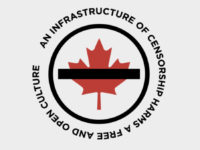My fair dealing week posts conclude with a look at the link between fair dealing and the fundamental right to read (previous posts focused on the lawsuit to recover overpayments from Access Copyright, the importance of fair dealing for creators, freedom of expression, and news reporting). The critical importance of fair dealing as a user’s right was demonstrated in the 2016 copyright case between the Blacklock’s Reporter, an Ottawa-based online paywalled news site, and the federal government. Blacklock’s, which has filed multiple lawsuits against government departments, sued the Department of Finance for $17,209.10 over two articles that were sent to government officials from a paying subscriber concerned with comments found in the article. The articles were subsequently forwarded to several media relations personnel within the department.

Fair Dealing by Giulia Forsythe (CC BY-NC-SA 2.0) https://flic.kr/p/dRkXwP
Copyright
The Case Against the Bell Coalition’s Website Blocking Plan, Part 12: Increasing Privacy Risks for Canadians
The Bell website blocking coalition cites privacy protection as a reason to support its plan, noting the privacy risks that can arise from unauthorized streaming sites. There are obviously far better ways of protecting user privacy from risks on the Internet than blocking access to sites that might create those risks, however. Further, with literally millions of sites that pose some privacy risk, few would argue that the solution lies in blocking all of them. In fact, the privacy argument is not only weak, it is exceptionally hypocritical. Bell is arguably the worst major Canadian telecom company on user privacy and its attempt to justify website blocking on the grounds that it wants to protect privacy is not credible.
Fair Dealing Support for News Reporting and Public Debate: The Case of Warman and National Post v. Fournier
Having examined the importance of fair dealing for creators and freedom of expression, the fair dealing week posts continue with fair dealing and its support for news reporting and public debate. In recent months, some news organizations have taken aim at fair dealing, arguing that it is a detriment to […]
The Case Against the Bell Coalition’s Website Blocking Plan: Canadians Take a Stand Against Site Blocking
The Bell playbook for its website blocking proposal has largely followed a familiar narrative. Much like the “Fair for Canada” campaign in 2013 that was designed to convince Canadians that keeping foreign competitors such as Verizon out of the country was in their best interest, the FairPlay Canada campaign similarly tries to make the case that a coalition of supporters want the CRTC to institute website blocking without court orders. The campaign clearly starts with Bell: they first raised the issue in September at a House of Commons committee hearing, obtained the legal opinion to support the application (it is addressed to Bell), and used a closely allied law firm to draft the application.
Why Fair Dealing Safeguards Freedom of Expression: The Case of the Vancouver Aquarium
Having discussed the importance of fair dealing for creators in yesterday’s post, today’s case looks at the link between freedom of expression and fair dealing. A recent case involving the Vancouver Aquarium placed the spotlight on how fair dealing can be used to safeguard freedom of expression, even when (indeed particularly when) a rights holder may prefer to use copyright to block the expression. In 2015, two film makers created a documentary on the Vancouver Aquarium called “Vancouver Aquarium Uncovered.” The film, which can now be viewed online, focuses on whales and dolphins in captivity. The Vancouver Aquarium filed a copyright infringement action, seeking to have the documentary removed from all public viewings and the deletion of photos and video clips shot at the aquarium.











